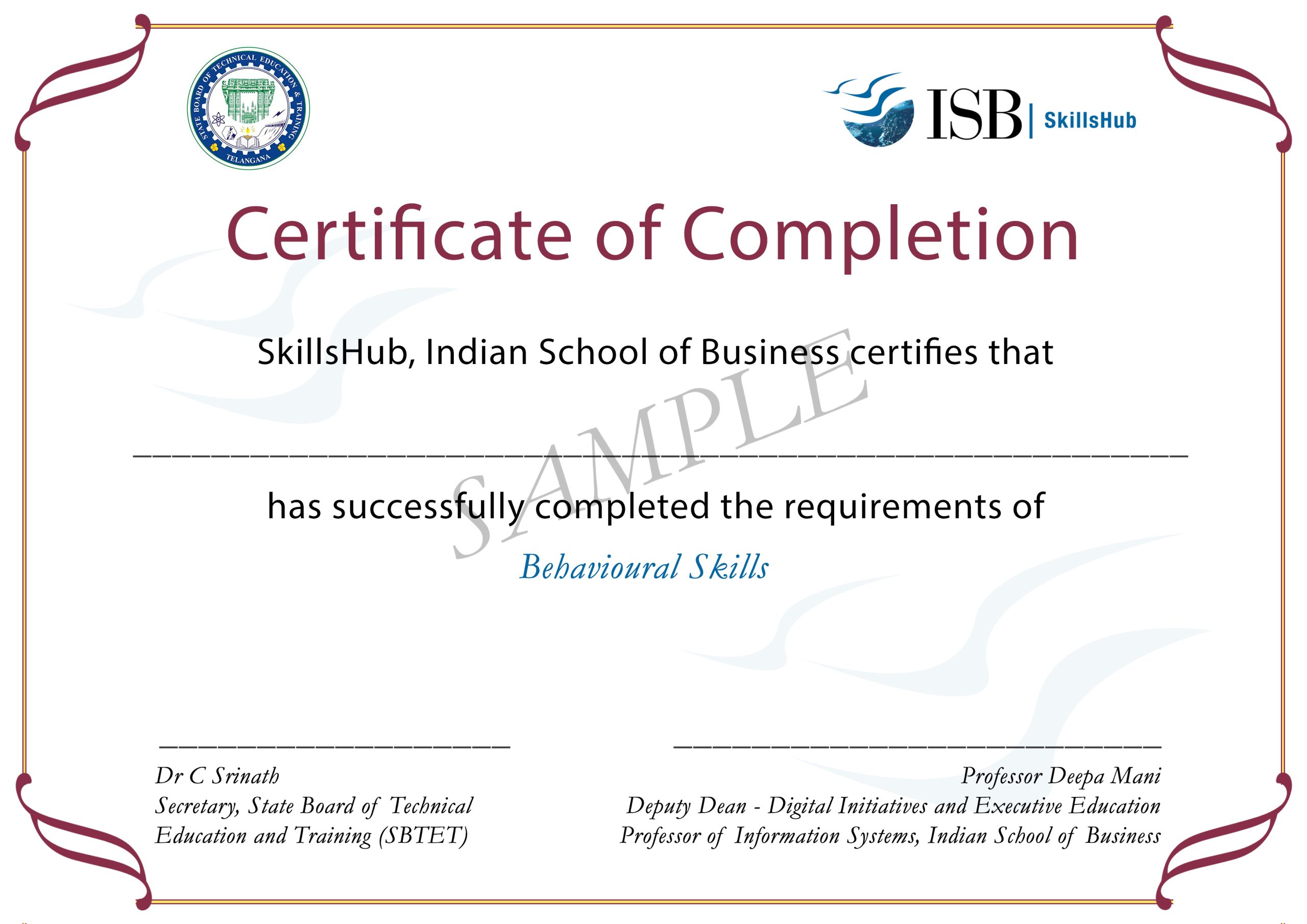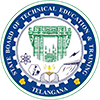Define and create a unique persona for your professional self
Define and create a unique persona for your professional self
It is widely acknowledged today that cognitive, social and behavioural skills are far more critical for your personal and workplace success than technical or functional skills. Not surprisingly, these skills have witnessed a marked transition in the past decade from generic and good to having to be defined and a pre-requisite.
This programme is aimed at empowering you with a range of skills and strategies to enhance your personal and workplace effectiveness.
The programme does this by focusing on three broad areas:
Impact
By the end of this programme, you will be able to identify and be the best vision of yourself. You will know yourself better, be able to collaborate and communicate with others better, and work better in organizations by improving how you think, decide, solve problems, and execute tasks. The programme makes you skilled at connecting with peers and improving performance for yourself and the team.
Eligibility
Students from any stream currently pursuing a Diploma/ Bachelor’s/Master’s programme from colleges affiliated with SBTET are eligible for enrolling in these programmes.
Monthly Batches
New batch starts on the first Monday of every month.
This course helps us enhance our ability to communicate effectively in professional and personal settings. It is divided into two sections that focus on:
The verbal communication section starts with an assessment of your personality type using the Myers-Briggs Type Indicator (MBTI) tool. MBTI can be used to:
The section then moves on to identify skills needed to build mutually beneficial relationships and manage emotions while giving and receiving feedback.
The section on non-verbal communication outlines the importance and types of this communication, including body language, facial expressions and gestures, and how to pick up on these non-verbal cues in any setting
This course starts by differentiating between presentation and public speaking skills, It identifies the key components of an effective presentation with a special focus on how to conduct a detailed audience analysis. It moves on to discuss various formats of persuasion and ends with tips and tricks to overcome fears encountered while speaking in public.
This course emphasizes how people develop relationships that are mutually beneficial and satisfying. It starts with methods of how to build an effective network and moves on to dispel misconceptions about networking. Next, it describes the attributes of a great networker and cites common networking pitfalls to avoid. It ends with techniques to rationalise and optimise your network.
This course helps you define the concept of personal branding, explains why " Branding yourself” is an important consideration within a professional context and ends with a template that can be leveraged to build a personal plan to grow your personal brand.
This course starts by outlining the stages in the formation of a team, the different roles available in a team, and the role a team leader plays especially when it comes to managing conflict situations that arise in a team. It then moves on to discuss the importance of teamwork with a special focus on the skills required to succeed in today’s virtual teams.
This course tells you how to do just that. It starts by defining the elements of a good story. It then applies Aristotle’s 3 appeals 'Logos, Ethos and Pathos' to write a speech that connects with your audience. It goes on to share secrets that all great orators use to garner attention and develop resonance amongst their audience.
This course will introduce you to decision models and emphasize how despite the availability and knowledge of data, our understanding of the world is heavily influenced by abstract representations of events. We are prone to serious judgment errors that can be avoided to a degree when we understand their basis. Knowledge of these biases will help us analyse problems from multiple perspectives and arrive at well-thought-out decisions and judgments.
This course will help you develop a systematic approach to negotiating efficiently, both in your personal and professional life. You will start by identifying the components of effective negotiation, then move on to recognizing the different types of negotiation, and appreciate the aspects involved in distributive, integrative, and dispute resolution negotiations.
Digital proficiency is an important competence in the new world of work. It reflects the ability to understand, work with and operate technology. Various technological applications help us improve the efficiency and efficacy of our work. Examples of such applications include word processors, spreadsheets, data management and analysis tools, and collaboration tools, amongst others.
This course will equip you with the fundamentals of productivity enhancement software applications, including:
Information technology as defined by Merriam Webster is the technology involved in the development, maintenance, and use of computer systems, software, and networks for the processing and distribution of data.
This course starts by identifying how computer hardware and software work in tandem. It moves on to explain the intricacies of different operating systems and the skills needed to use window-based applications. Next, it gives tips and tricks on how to leverage the information available on the web. It ends with touching upon technological innovations like the Geographical Information System (GIS), Global Positioning System (GPS), Artificial Intelligence (AI), and Digital Media.
Social media presence has become an integral part of our lives, especially with pervasive access to mobile devices. While social media has a phenomenal impact on both our professional and personal lives, it brings with it various associated risks. Therefore, it is all the more necessary to understand how to leverage social media for our own needs.
This course starts with the benefits of the Internet and social media while highlighting the associated risks. It goes on to explain internet-oriented frauds such as hacking, phishing, malware, spyware, ransomware, etc. It concludes with a clear differentiation between what is appropriate and inappropriate behaviour on social media.
Job interviews can be stressful for many, but it doesn’t have to be that way. Before you begin to prepare for the interview, it is important to master your mindset for the interview process.
This course helps master the most asked questions at job interviews and ace every job interview with confidence and ease. The course also offers roleplays that demonstrate how to conduct yourself while attending a job interview.
Significant organizational change can be challenging. It often requires many levels of cooperation and may involve different independent entities within an organization. Developing a structured approach to change is critical to help ensure a beneficial transition while mitigating disruption.
This course on Change Management touches upon the following - defining the change, selecting the change management team, identifying management sponsorship and securing commitment, developing an implementation plan including metrics, implementing the change, collecting and analyzing data, quantifying gaps and understanding the cause for resistance and finally modifying the plan as needed and looping back to the implementation step.

Associate Professor, Strategy

Professor of Organisational Behaviour (Practice)

Professor of Marketing (Practice)

Assistant Professor, Organisational Behaviour

Professor of Practice, Leadership Communication, Tufts University

Visiting Faculty, ISB

Visiting Faculty, ISB

Please contact skillshub@isb.edu for enrollment queries

